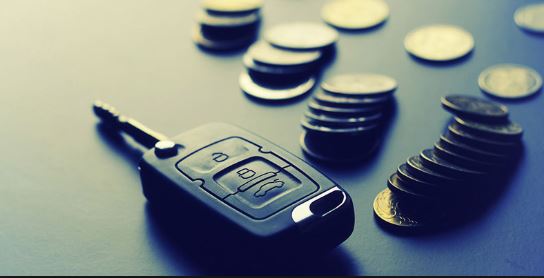Let’s face it – you could always use another money-saving strategy. While looking for loose change in your couch cushions is all well and good, you are trying to make serious progress towards paying off your debt or saving up to reach a goal. Unfortunately, you’ll barely make a dent with a roll of dimes.
I’m not knocking penny collection as a valid way to meet your financial objectives, but you should also think big-picture. To construct a budget that will withstand surprise costs, you’re going to have to plan ahead. Calculate how much money you’re going to spend unexpectedly in the coming year. If you read that last sentence slowly, you’ll see the problem. How could anyone possibly predict when they’re going to need a bunch of cash on hand?
The truth is, nobody has a crystal ball, but there are five distinct ways you can take action now in order to avoid going into debt in the future.
1. Pay Attention to Your Home and Vehicle
When was the last time you checked your car’s tire pressure? When was the last time your home’s HVAC system was serviced? These are questions you should know the answer to, because they can save you hundreds of dollars every year not only by preventing repairs, but by making both your vehicle and your home run smoother and more efficiently. Here are some specific ways to prevent high repair costs:
Regularly Service Your HVAC System
In the summer months, you can lower your air conditioner’s energy consumption by 15% if you regularly change the air filters. The system will not have to work as hard, resulting in a longer life span. You can also make sure no grass, weeds, or leaves get within two feet of the outdoor unit by doing regular yard work – making it easier for the system to draw in air from the outside.
Each year, make sure you have a professional clean the HVAC system’s drain and make sure no ducts are blocked. The cleaning will cost you an annual fee, but the amount can be scheduled into your budget far ahead of time – better than paying up to $500 plus labor for a new HVAC fan motor, because the old one was overtaxed and under-serviced.
Check Your Car’s Tire Pressure
While it’s a matter of debate whether cars need an oil change every 3,000 miles, you can bet your tires need to be filled at regular intervals. Every time you lose 3.0 PSI, you also lose 1% of your fuel efficiency. You won’t believe what deflation does to your actual tires! If you keep your tires properly inflated, they can last an additional 1,143 miles. With worn-out tires as one of the top vehicle maintenance costs, why not part with a few quarters to delay paying for a whole new set?
2. Schedule Regular Doctor Visits and Live Well
When it comes to your health, nothing can be gained from putting off your annual physical. Catching diseases before they escalate is a sure way to both live longer and not pay as much in medical bills, and regular health screenings are recommended by the Centers for Disease Control and Prevention.
Want to know how much the average American family pays in out-of-pocket healthcare expenses? $9,144! You should be proactive about getting a physical, as well as actively budget for prescriptions and co-pays.
Chances are, you’re paying for your healthcare plan whether you use it regularly or not. Why not make it a point to get screened? Then, you could potentially avoid ten of the most common, most expensive medical conditions, as reported by Forbes.com.
Here are a few:
- Cancer – $49,000
- Hemophilia – $62,000
- Coronary Artery Disease – $75,000
If you have a cost-share plan with your medical insurance company, you might end up paying for almost half the total cost of treatment. Believing you’ll never get seriously ill is not a good outlook – most people have this mindset until something happens to them. See your doctor on the regular and stick to a healthy diet and fitness plan.
3. Plan Out Your Meals
You might not be Julia Child, but you can follow directions. You’re reading this article, aren’t you? Shopping and cooking (or microwaving) for yourself will not only result in a healthier you (see #2 on this list) but can save you hundreds – possibly thousands – in the future.
Before you buy the latest and greatest cookbook, invest in these two items:
- Crock-pot slow cooker
- Plastic bins to freeze food
There are two main benefits these items will provide: you can easily make your food ahead of time and have it cook while you are gone, and you can make it in bulk. Now on to the execution of your food proactivity.
First, devote one day of the week to meal preparation. Then, follow these steps:
- Pick out a few recipes that have less than five ingredients.
- Make a list of ingredients to buy.
- Go to the store and stick to a budget.
- Go home and start cooking.
- Freeze leftovers in meal-sized portions for future fast reheat.
Your dinners are set for the week, or weeks, depending on how much you cooked. When you come home from work starving, tired, and ready to switch on Netflix and pass out, you will no longer be tempted to drop $20 on Chinese takeout. Not only that, you’ll have set a grocery budget and stuck to it.
You can also save money by packing your lunch. Go to your local deli and look at the sandwich prices – $6, maybe $9 for a combo. Instead, buy a loaf of bread – $3. Buy a pound of chicken breast – $5. Buy a pound of cheese – $5. For only about double the price of eating one sandwich, you get six to eight sandwiches. Even if math isn’t your strong suit, you can see the payoff here.
4. Budget for Holiday Shopping
In 2018, holiday shoppers spent an average of $801 each. That is a giant number for your budget to absorb in one month. What if you spread that cost out over the course of a year? Even as a monthly expense, your holiday shopping budget will cost you around $66 per month.
If you’re the type of family member who likes to spoil their relatives, that number could get even higher. And that’s only counting the gifts that you’re purchasing for friends and family. What about wrapping paper, bows, ribbons, and bags? What about travel expenses to visit distant family? What about hosting a holiday party at your own residence and buying food, alcohol, and decorations?
The costs can rise quickly and you might find yourself tempted to just “put a little on the credit card.” If you WANT to be paying off last year’s holiday gifts until next summer, be my guest. However, if you want to get ahead of the game and have plenty of money to enjoy yourself and be Santa Clause to everyone else, start planning for next year’s holiday right away.
Put money aside monthly, after you get your tax return, or after another windfall of cash. Recognize the holiday season is something to save for in order to keep your budget intact.
5. Anticipate Family and Friends’ Life Events
If you thought your gift-giving stopped at the holidays, you were wrong. Birthdays, bridal showers, baby showers, weddings, funerals, anniversaries, christenings, baptisms, and more cause you to shop until you drop.
You’ll know your parents’ golden wedding anniversary is coming up well in advance – so plan for it. You might not know your sister is planning on getting married – but once she gets engaged, plan for it. It’s not just the holidays that require thought and preparation, but caring for everyone else in your life too.
Here’s a suggestion: don’t just save blindly. You’re not restricted to one savings account. You can have multiple accounts at no charge just by meeting a minimum balance. Make sure one of your savings accounts is geared specially toward events requiring you to spend money. You’ll feel awesome when you’re able to contribute to someone else’s happiness, especially since it doesn’t require you to swipe that credit card or take out a loan.
After reading this list, you’re probably exhausted. Being proactive takes work! Now you’re getting the point. By putting in extra thought, extra care, and extra time, you can and will avoid major expenses that could seriously rock your budget, your plans, and your life.


